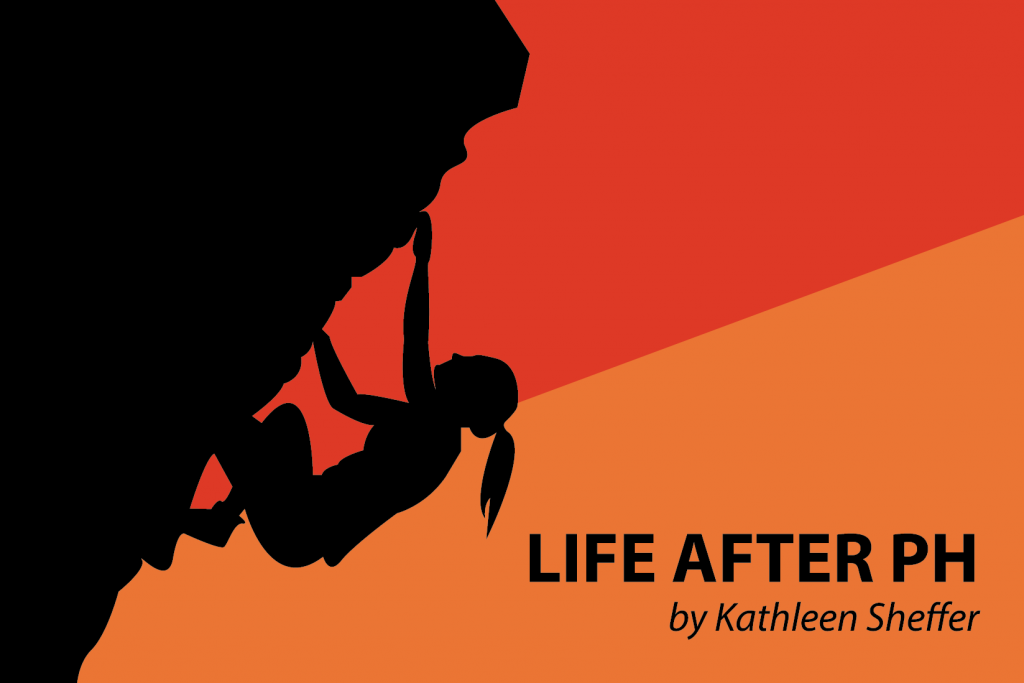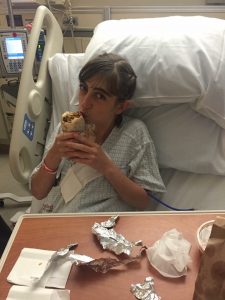Dating with Chronic Illness
Written by |

My health has always served as an extra filter for my relationships, romantic or otherwise. One man asked me to be his girlfriend on a Friday night and then broke up with me on Sunday, citing his desire for biological children as the sticking point. At 19, starting a family was far from my mind, but I had opened up to him about my inability to bear children while sharing more about my disease.
Other PH patients had told me similar stories of rejection due to life expectancy, childbearing, and health maintenance issues. One patient shared that his teenaged girlfriend broke up with him because she thought it would be too difficult to be more than friends when he died. Some people just couldn’t handle the disease, and I figured it was better to know that earlier rather than later.
Soon after my heart-lung transplant, I asked my nurse practitioner how long I had to wait before kissing someone on the lips. She dodged the question, but when pressed, told me, “We can talk about that in six months.” I had been expecting a standardized answer in line with the amount of time I had to wait to raise my arms above my head or drive a car. Six months?! And even then just a discussion? In my pained and drugged state, I felt hopeless. If I went on a date, would I have to disclose that we couldn’t talk about kissing for another six months? I resolved to be a cat lady.
As with most aspects of “normal life” I believed were permanently over after my transplant, I was wrong. On average, transplant centers advise waiting six weeks for intimacy with a partner, and encourage kissing much earlier than that, as long as they’re healthy (and ideally brush their teeth)!
Anyway, I didn’t listen to the nurse and started dating when I went back to living on my own a few months after surgery. I was listing my hobbies — making art, cooking, playing board games — when my date interjected. He never really got into playing games, he said, because he always preferred to play outside. My love for board games and jigsaw puzzles developed over the many days I spent sick at home. Of course, I would have preferred to play outside, too.
It occurred to me then that many of my preferences are the product of a disease I no longer have. My life with pulmonary hypertension (PH) was fairly sedentary, but now I’m up early to exercise nearly every morning. Dating after transplant helped crystallize the reality that my priorities have changed, and that I’m still developing the way I want to live my life.
I’ve always been very open about my condition, for reasons I describe in an earlier post. My online dating profile featured pictures of me in the hospital. I expect people to ask me about my condition because it constitutes a big part of my life — I spend hours writing about it every week! My ideal partner acknowledges my health challenges and makes space for me to talk about them when I want to, without letting them define me or our relationship.
Some guys can’t hang with my dark transplant humor, so when a guy takes a photo of my dissected sick heart in stride, simplifies “heart-lung transplant” to “switcharoo,” and starts quoting my blog posts (mostly to tease me about being a “fall risk”), I know he’s special.
So many couples vow to have and to hold in sickness and in health without ever knowing sickness. Circumstances change over time and test the relationship. As a woman with chronic illness, I envy those who never worry that their partner might leave them because they want biological children, or because they don’t ever want to be a caretaker, or maybe because they’re just not that into chests covered in scars. But healthy women should envy me because I get to begin a relationship knowing my partner will remind me to take time-sensitive medications, buy me pasteurized cheeses, and tell me I look good in a hospital gown.
***
Note: Pulmonary Hypertension News is strictly a news and information website about the disease. It does not provide medical advice, diagnosis, or treatment. This content is not intended to be a substitute for professional medical advice, diagnosis, or treatment. Always seek the advice of your physician or other qualified health provider with any questions you may have regarding a medical condition. Never disregard professional medical advice or delay in seeking it because of something you have read on this website. The opinions expressed in this column are not those of Pulmonary Hypertension News or its parent company, Bionews Services, and are intended to spark discussion about issues pertaining to pulmonary hypertension.






flingster
Navigating the dating world can be challenging, especially with a chronic illness. But remember, whether it's face-to-face or cam to cam, your worth isn't defined by your health.